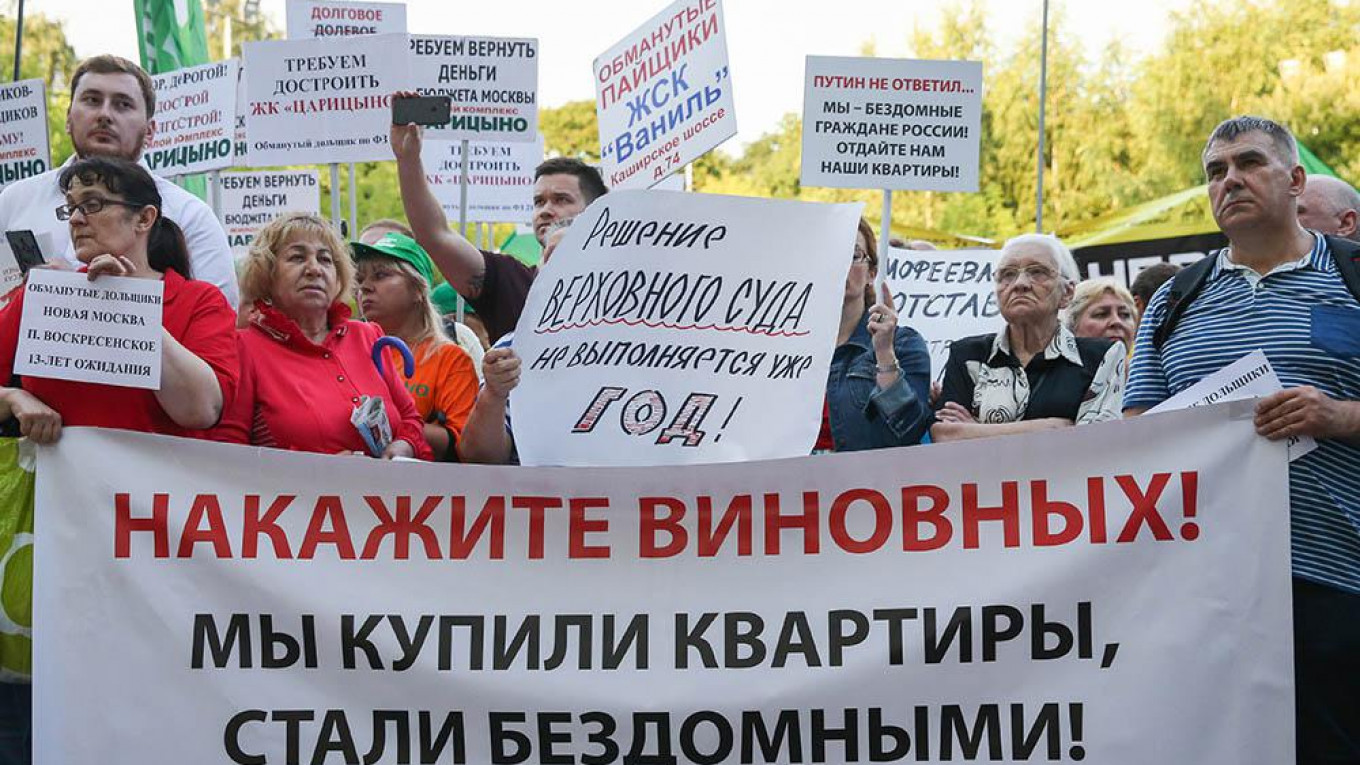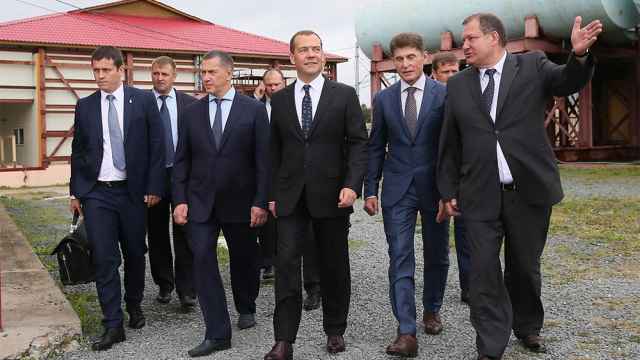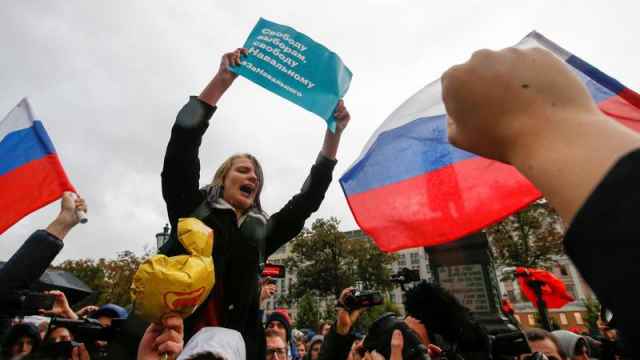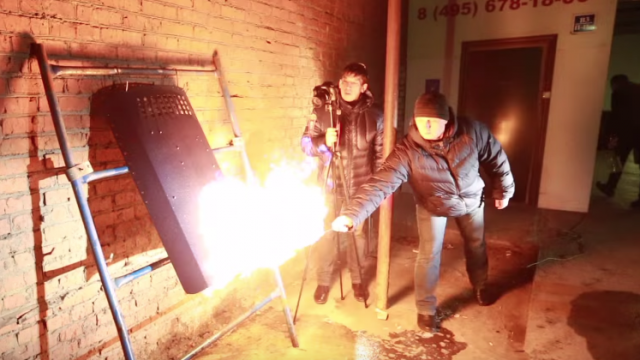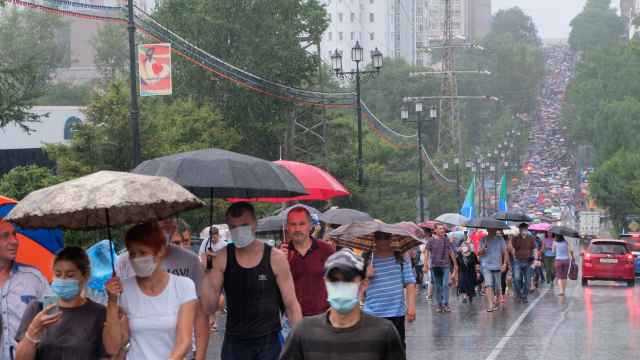As Russia gears up to mark the centenary of the Bolshevik uprising, a new study shows a sharp increase in Russians’ readiness to take to the streets.
More than 1,100 events were staged to protest political, socio-economic and labor issues between January and September this year, the Center for Economic and Political Reforms (CEPR) said in a study published on Tuesday.
The publication date coincides with the centenary of the October Revolution when the Bolsheviks toppled the provisional government and seized power.
One hundred years later, in 2017, protests included Alexei Navalny’s nation-wide rallies against corruption, protests by Moscow residents against City Hall’s plan to demolish thousands of apartment blocks and truck drivers' protests against a controversial road tax.
The number of protests appears to be increasing — from 248 protests in the first three months of the year to 445 six months later.
The majority of protests are linked to unpaid wages, home ownership problems and labor disputes, CEPR said.
Protests were most common in a number of regions including Rostov, Krasnodar and Sverdlovsk and Russia’s largest cities, Moscow and St. Petersburg.
The research center attributed the protests to the authorities' “destructive response tactic” — including ignoring issues altogether or only pretending to solve them.
“Protest and conflict escalation remain almost the only effective ways for employees to defend their rights,” the report said.
Meanwhile, a different poll published on Tuesday by the independent Levada Center, showed Russians’ satisfaction with the police had increased in the past three years, to 46 percent.
A Message from The Moscow Times:
Dear readers,
We are facing unprecedented challenges. Russia's Prosecutor General's Office has designated The Moscow Times as an "undesirable" organization, criminalizing our work and putting our staff at risk of prosecution. This follows our earlier unjust labeling as a "foreign agent."
These actions are direct attempts to silence independent journalism in Russia. The authorities claim our work "discredits the decisions of the Russian leadership." We see things differently: we strive to provide accurate, unbiased reporting on Russia.
We, the journalists of The Moscow Times, refuse to be silenced. But to continue our work, we need your help.
Your support, no matter how small, makes a world of difference. If you can, please support us monthly starting from just $2. It's quick to set up, and every contribution makes a significant impact.
By supporting The Moscow Times, you're defending open, independent journalism in the face of repression. Thank you for standing with us.
Remind me later.


